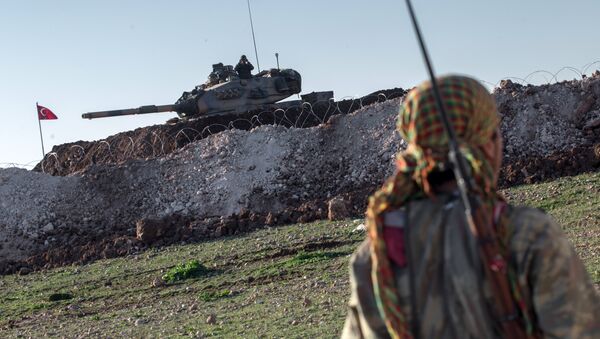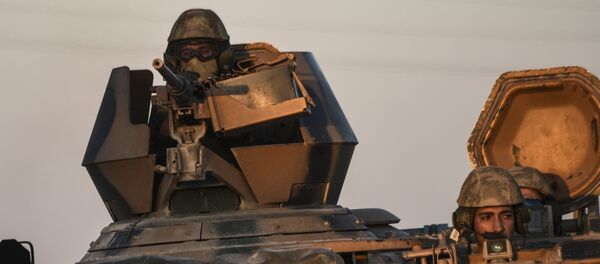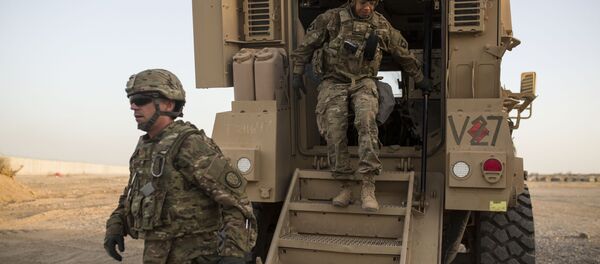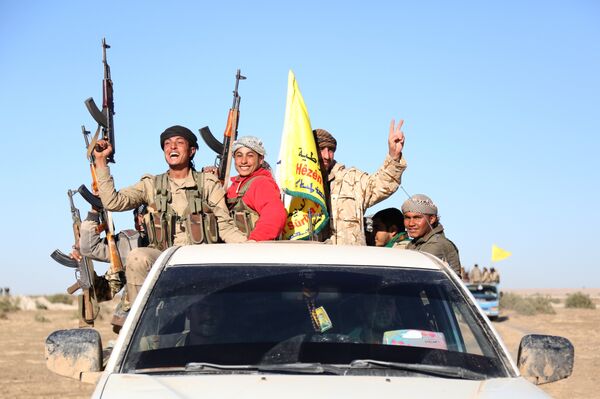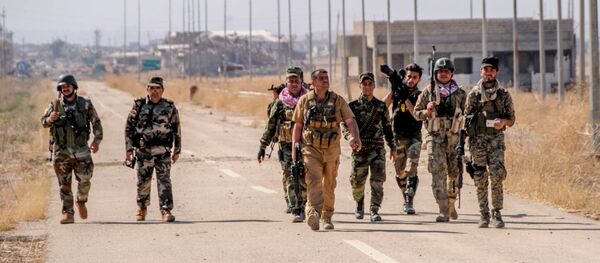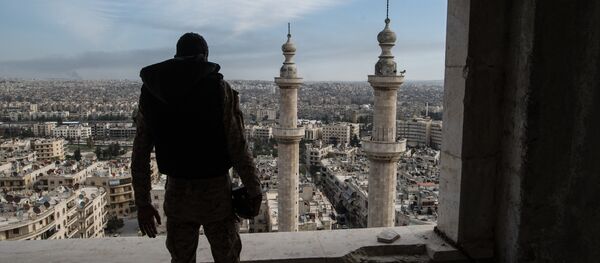As the battle for Mosul is gaining pace, the Pentagon has signaled that the offensive on Daesh's Syrian stronghold Raqqa will begin within the next few weeks.
"It starts in the next few weeks," US Secretary of Defense Ashton Carter told NBC News last Wednesday, referring to the Raqqa offensive.
While the Pentagon is not excluding Turkey playing a role in the upcoming offensive the assault will be carried out primarily by the Syrian Democratic Forces (SDF), comprising Arab militants and the Kurdish People's Protection Units (YPG).
"So, the facts are these. The only force that is capable on any near frame — near-term timeline is — are the Syrian Democratic Forces, of which the YPG are a significant portion," Lt. Gen. Stephen Townsend, Commander of Combined Joint Task Force-Operation Inherent Resolve, explained during a press conference on October 26.
The crux of the matter is that Ankara considers the YPG an affiliate of the Kurdistan Workers Party (PKK), which is outlawed in Turkey.
"So, we're negotiating, we're planning, we're having talks with Turkey and we're gonna take this in steps… The Turks have expressed an interest to be involved in that [the Raqqa offensive]. And we'll — we'll work through that later," Townsend told reporters.
However, it seems that Ankara is not inclined to make compromises.
On Monday Turkey's Deputy Prime Minister Numan Kurtulmus stressed that Ankara is determined to continue fighting against "all groups threatening the country's security and stability," Daily Sabah reported.
"The Raqqa operation must be launched by legitimate armies," Kurtulmus emphasized in a clear reference to Turkey's opposition to the YPG-dominated SDF forces taking part in the liberation of the city.
Speaking to Sputnik Turkiye, Turkish political observer and expert on Middle Eastern affairs Bora Bayraktar, highlighted that Washington's inconsistent position regarding the liberation of Raqqa may drag the region into chaos, as it happened before in Iraq and Afghanistan.
"It looks as if the US command is guided by the following logic: 'we will launch the operation to liberate Raqqa in parallel with the ongoing Mosul campaign and then will see what consequences it will bring and what benefits we can get from it.' Such an approach bears a huge risk for the Syrian Kurds, since the Kurdish Democratic Union Party (PYD), which Turkey considers a terrorist organization, will be lured into military activities beyond its own territory," Bayraktar elaborated.
"I believe that [the YPG/PYD] intervention in Raqqa, predominantly inhabited by the Sunnis, may turn into a serious Arab-Kurdish conflict," he warned, adding that the local Sunni forces will be obviously unhappy with the Kurdish "intervention."
"Turkey believes that its security is subjected to constant threats in the region. The Turkish leadership deems that the country is in the double grip. On the one hand, it is [anxious about] the situation along the southern Turkish frontier, affected by the Iran-backed Shiite Crescent. On the other hand, it is [concerned about] the Syrian Kurds' activities aimed at the creation of the Kurdish corridor between Sinjar and Kandil," the expert underscored, shedding light on Turkey's perception of the situation in the region.
Bayraktar underscored that it is hard to predict how the Raqqa operation would affect US-Turkish relations if the effort will involve the Kurdish military force.
"It is highly probable that it will further aggravate tensions between Ankara and Washington," he believes.
Commenting on Russian-Turkish cooperation in the region, the expert suggested that Russia and Turkey are interested in maintaining high levels of collaboration.
"Recently, Russia has gained a series of military and political victories in the region," Bayraktar pointed out.
"In this circumstance, Moscow is ready to maintain close ties with such an important regional player as Turkey," he added.
Bayraktar believes that Turkey also needs Russia. He recalled that after shooting down the Su-24 in 2015 Turkey had found itself "face to face with the US and with no trump cards against the West."
"After Ankara mended ties with Moscow, it has gained the room for maneuver in both diplomatic and military spheres. Both countries are interested in expanding bilateral contacts. In this circumstance it is important for Turkey to conduct a thought-out and well-balanced policy in relations with the US and with Russia, avoiding sharp moves and thoughtless actions," Bayraktar emphazised.
